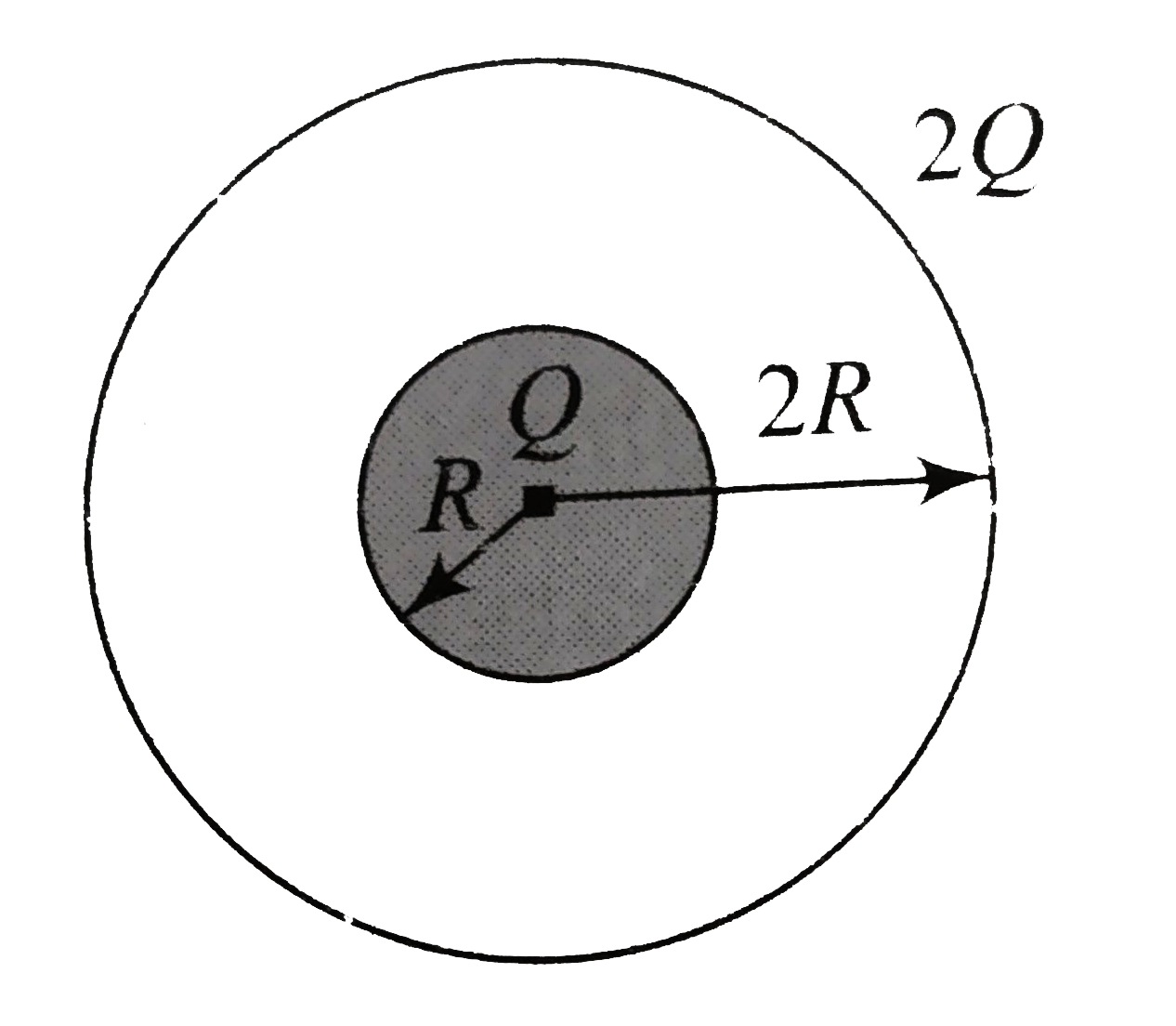A charge Q is enclosed by a Gaussian spherical surface of radius R. If the radius is doubled, then the outward electric flux will
be reduced to half
remain the same
be doubled
increases four times
The correct Answer is:B
To solve the problem, we will use Gauss's Law, which states that the electric flux (Φ) through a closed surface is proportional to the charge (Q) enclosed by that surface. The formula for Gauss's Law is given by:
Φ=Qenclosedϵ0
where:
- Φ is the electric flux,
- Qenclosed is the total charge enclosed within the Gaussian surface,
- ϵ0 is the permittivity of free space.
1. Identify the initial conditions:
- A charge Q is enclosed by a Gaussian spherical surface of radius R.
- The electric flux through this surface can be calculated using Gauss's Law.
2. Calculate the initial electric flux:
- According to Gauss's Law, the electric flux when the radius is R is:
Φ=Qϵ0
3. Change the radius of the Gaussian surface:
- Now, the radius of the Gaussian surface is doubled to 2R.
- However, the charge Q remains the same and is still enclosed by the surface.
4. Calculate the new electric flux:
- The electric flux through the new Gaussian surface (with radius 2R) is still given by Gauss's Law:
Φ′=Qϵ0
5. Compare the initial and new electric flux:
- Since the charge Q enclosed by the Gaussian surface has not changed, the electric flux remains the same:
Φ′=Φ=Qϵ0
Conclusion:
The outward electric flux remains the same even when the radius of the Gaussian surface is doubled. Therefore, the answer is that the electric flux does not change.
- Φ is the electric flux,
- Qenclosed is the total charge enclosed within the Gaussian surface,
- ϵ0 is the permittivity of free space.
- A charge Q is enclosed by a Gaussian spherical surface of radius R.
- The electric flux through this surface can be calculated using Gauss's Law.
- According to Gauss's Law, the electric flux when the radius is R is:
Φ=Qϵ0
- Now, the radius of the Gaussian surface is doubled to 2R.
- However, the charge Q remains the same and is still enclosed by the surface.
- The electric flux through the new Gaussian surface (with radius 2R) is still given by Gauss's Law:
Φ′=Qϵ0
- Since the charge Q enclosed by the Gaussian surface has not changed, the electric flux remains the same:
Φ′=Φ=Qϵ0
The outward electric flux remains the same even when the radius of the Gaussian surface is doubled. Therefore, the answer is that the electric flux does not change.
Similar Questions
A positive charge q is enclosed by a Guassian spherical surface of radius 'a' . If its radius is increased to 4a then the net outward flux will
View SolutionA charge Q is enclosed by a Gaussian surface. If surface area is doubled and charge Q is tripled then the outward electric flux will
View SolutionDefine electric flux. Write its SI unit. A charge q is enclosed by a spherical surface of radius R. If the radius is reduced to half, how would the electric flux through the surface change ?
View SolutionConsider a Gaussian spherical surface covering a dipole of charge q and -q, then

View SolutionA spherical shell of radius R has a uniformly distributed charge ,then electric field varies as
View SolutionAn infinite, uniformly charged sheet with surface charge density σ cuts through a spherical Gaussian surface of radius R at a distance X from its center, as shown in the figure. The electric flux Φ through the Gaussian surface is .

View SolutionA point charge Q is placed inside a conducting spherical shell of inner radius 3R and outer radius 5R at a distance R from the centre of the shell. The electric potential at the centre of the shell will be
View SolutionA charge 'Q' is placed at the centre of a hemispherical surface of radius 'R'. The flux of electric field due to charge 'Q' through the surface of hemisphere is
View SolutionA charge Q is uniformly distributed in a dielectric sphere of radius R (having dielectric constant unity). This dielectric sphere is enclosed by a concentric spherical shell of radius 2R and having uniformly distributed charge 2Q. Which of the following graph correctly represents variation of electric field with distance r from the common centre?

View SolutionA point charge q is placed inside a conducting spherical shell of inner radius 2R and outer radius 3R at a distance of R fro the centre of the shell. The electric potential at the centre of shell will (potential at infinity is zero).
View Solution
